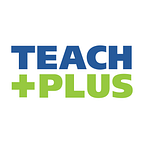The value of vocational education: Lessons from the German school system
By Josh Brown
When I first became a teacher, my classroom was in the former auto shop room and featured industrial power outlets and air intake vents which my students found amusing. My second classroom used to house our school’s discontinued art program and still had cabinets full of easels, brushes, and papier mâché. Budget cuts, difficulties recruiting credentialed teachers, and a shift in focus towards college readiness have all caused cut backs on career and technical education in our schools.
This is not the case elsewhere in the world. This summer, I participated in the Transatlantic Outreach Program, a teacher study program that looks to promote education about Germany and foster intercultural dialogue. For two weeks, my group of 16 teachers toured technical schools and job-training programs across the country in order to learn more about Germany’s vocational education system.
While in Berlin, we visited the ReDi School of Digital integration, a non-profit digital school for tech-interested newcomers. The school offers students training and the opportunity to collaborate with start-up and digital technology firms. ReDi school looks to equip the under and unemployed with the skills necessary to access 21st century tech careers. Microsoft, Cisco, and Facebook are among that organizations that partner with the ReDi School to teach Python Data Science, IT support, and other skills to a largely immigrant student body, free of charge.
ReDi School is one example of the highly successful German dual training system, which emphasizes collaboration between private companies and publically-funded vocational education schools. By promoting this partnership between industry and the public school system, students receive a dual education in both theory and practice while companies share the cost of educating their future employees. Ultimately, this system underscores the importance of aligning K-12 vocational education and STEM instruction with the needs of private industry.
Here at home, the public-private vocational education programs that currently exist are isolated cases. For example, while my students are able to access employment opportunities through the California Department of Rehabilitation (which facilitates and subsidizes employment opportunities for students at local companies), they do not receive any vocational skills training. Instead of a subsidized work experience program, students could participate in a subsidized apprenticeship program at a cooperating employer or vocational education center. And they could works towards a certificate under the guidance of a company partnership while simultaneously earning their high school diploma. That way, students would gain marketable, in-demand skills prior to graduation.
The German model would directly address a number of systemic issues plaguing our education system: Employers bemoan the lack of qualified skilled candidates for available positions, families struggle to cover the rising cost of college tuition, and high schools are charged with adequately preparing students for life after graduation. By partnering with industry, we would create a talent pipeline from high school to skilled positions, where students would have a chance at employment immediately after graduation. Moreover, the shared cost aspect between employers and the school district would significantly lower the financial burden on families and schools, while directly addressing the skilled labor shortage.
Imagine if a student could graduate with a high school diploma and an HVAC, coding, or information systems certificate simultaneously. In an increasingly competitive global job market, our students must learn relevant, real-world job skills before they graduate high school. Germany’s vocational education system provides an effective template we can emulate in our schools.
Josh Brown teaches 10th, 11th, and 12th grade special education at Francis Polytechnic High School in Sun Valley, California. He is a Teach Plus California Teaching Policy Fellowship alum.
